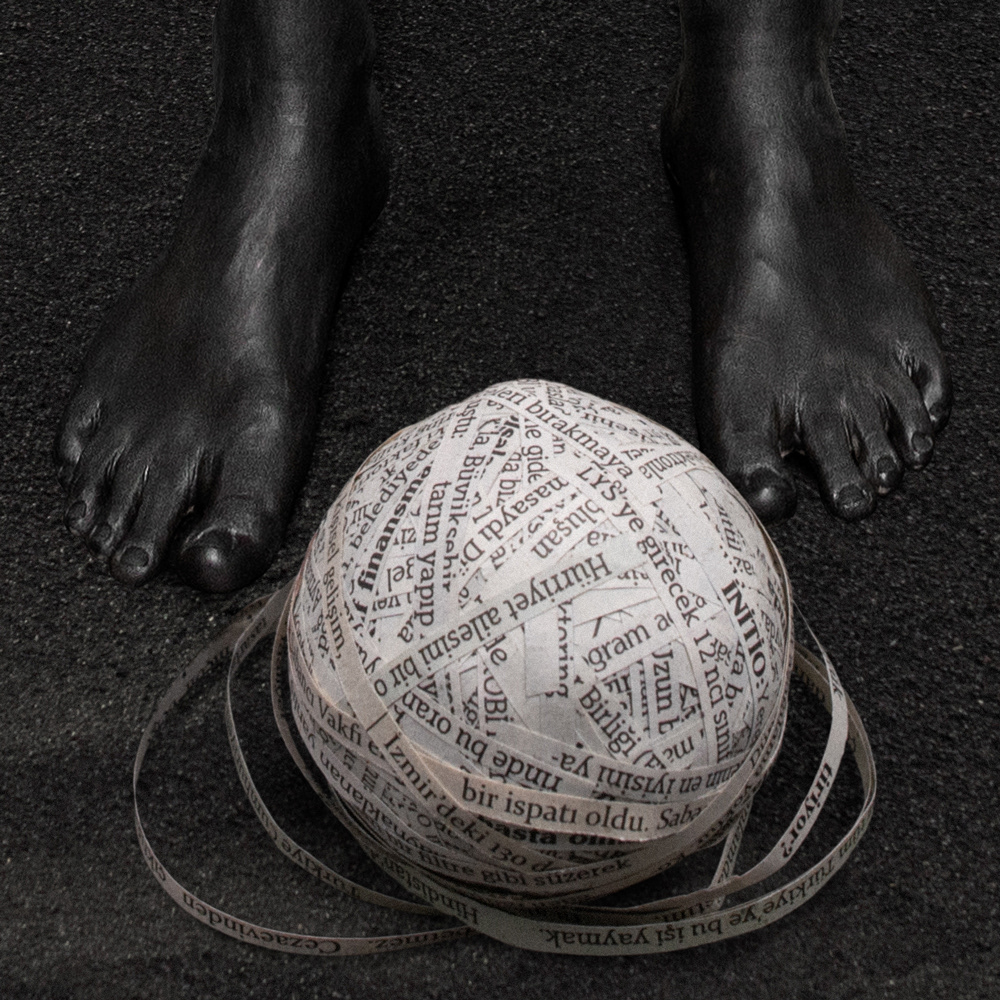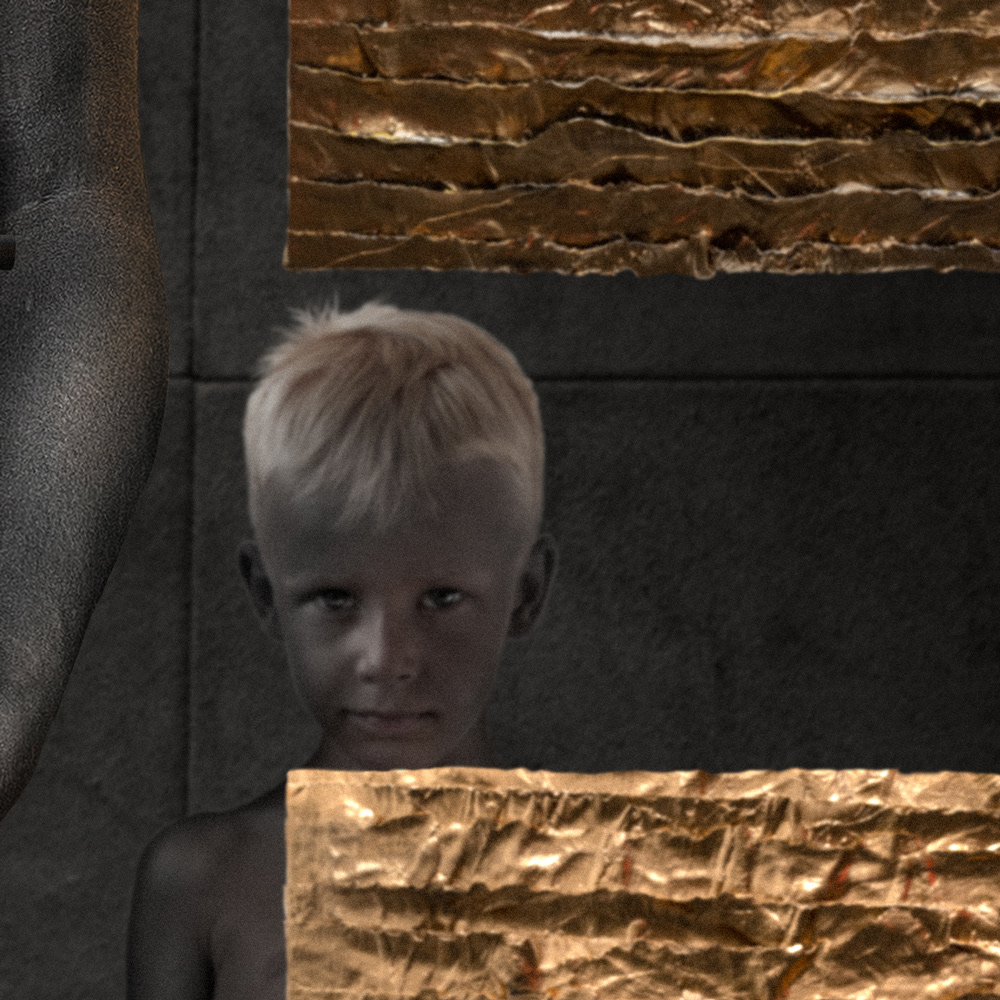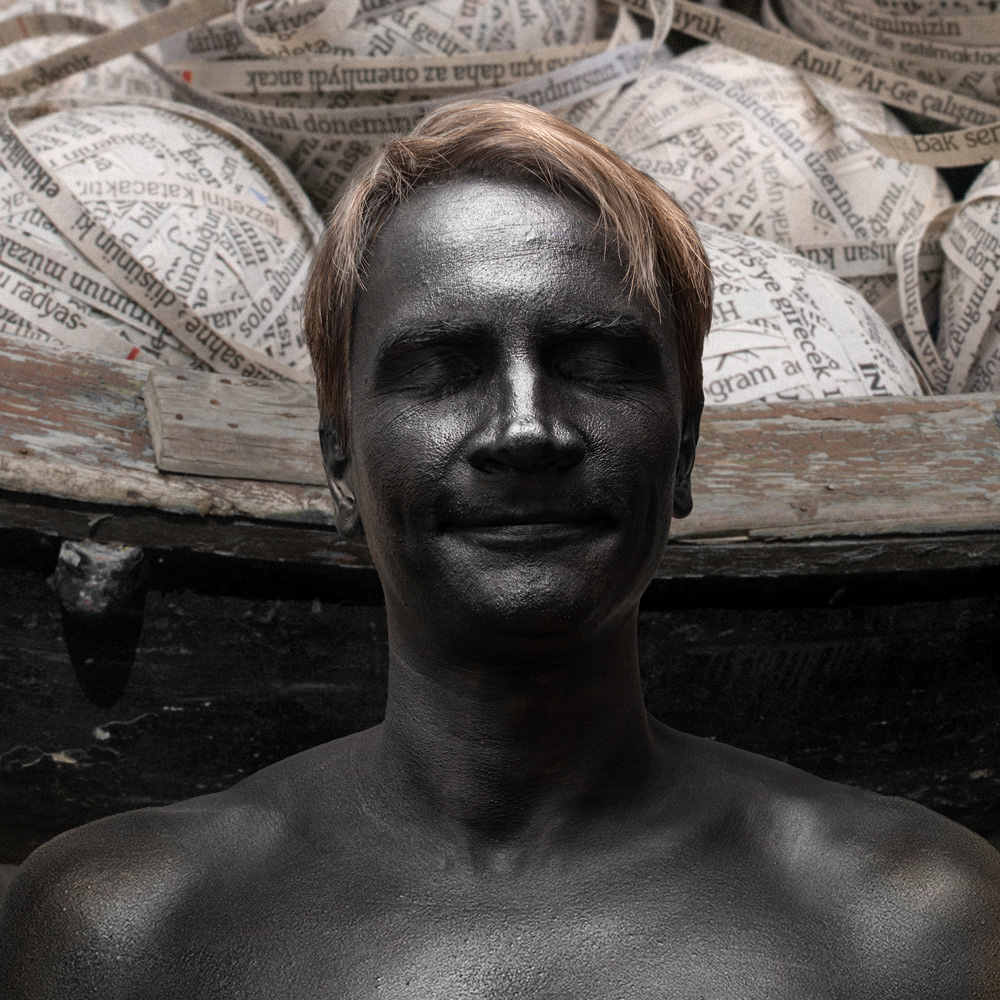Digital photography. Limited edition prints size 161 x 130 сm, 100 х 81 сm)
The script is one of the key concepts of transactional analysis, introduced by the American psychologist and psychiatrist Eric Berne. It manifests itself as a hidden force, the hand of a puppeteer, pushing a person to fulfill a life plan unconsciously drawn up in childhood under the influence of adults, which is sometimes repeated from generation to generation. We start creating it from the first months of our life, when a child learns everything from its parents: what to see, what to hear, what to touch, feel, how to react and what to say. By the time the script is finished, we begin to search for suitable actors for the main roles in our play. Unofficial casting is declared unconsciously: with facial expressions, specific words and gestures. Actors, whose life scenarios may intersect with ours, don't hesitate to respond and become our closest circle. Similar to a child's developing game, we acquire a certain shape and outlines to take our place in the appropriate cell. A ball fits round hole, and a cube goes through a square one. What looks like the hero’s freedom of choice or rebellion, actually turns out to be an alternative scenario or its exact opposition.
We are accustomed to believe that beauty and success in life are determined, first of all, by innate abilities. In fact, it's not so much a matter of anatomy as of parental permission. If they allowed the child to be beautiful, brave, intelligent, successful, it will undoubtedly grow up to be so. Only in response to the benevolent smile of its father and mother, the seed of acceptance of himself and the world is born in the hero - the main component of a happy life and a good scenario. Life position in relation to oneself and the world is an imprint, the foundation of the personality on which our whole life is built, it is a key to the scenario. If the child receives love from the secure parents in the childhood, then the scenario will be inspiring. Otherwise, the hero risks carrying the burden of drama throughout his life. No matter how favorable the conditions are, he will be guided by the impulses of the reptilian brain, continuously concerned with satisfying the basic need for safety in anticipation of the tragic finale of his creation. So, when the child has already learned who "I" am and how others should treat it, the hero moves on to the search for a suitable plot that answers the question "what happens to people like “I” am?" Someday it will hear a fairy tale from its grandmother, or hear a story from a loudspeaker on the street about a girl or a boy, about someone similar to "I". It will instantly realize it and declare: "It's me!"






